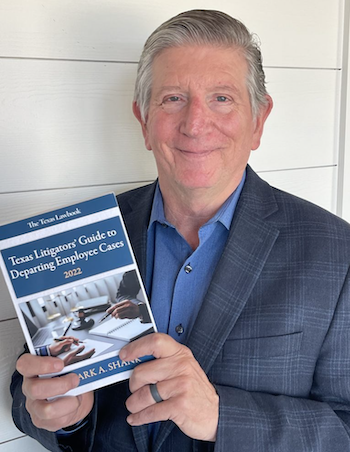On Jan. 5, the Federal Trade Commission announced a proposed rule that if enacted would effectively prohibit employers from imposing or enforcing noncompete agreements on their workers. The proposed rule seems to be in line with the Biden administration’s executive order issued in 2022 encouraging the FTC to exercise whatever legal authority it has to “curtail the unfair use of non-compete clauses” that “may unfairly limit worker mobility.” Here are some questions and answers about this new proposed rule.
What does the proposed rule cover?
The FTC characterizes noncompetes as an “unfair method of competition” and the new rule:
- Defines a “noncompete clause” as a contractual term where the employer prevents a worker from seeking or accepting employment with another employer after the conclusion of the working relationship.
- Prohibits contractual terms that have the “effect” of restricting work for a competitor after the conclusion of the working relationship. This appears to take aim at broadly drafted nondisclosure and nonsolicitation language.
- Covers almost all types of working relationships, including anyone providing services – paid or unpaid.
- Attempts to create a national standard for noncompetes and to bypass or supersede state statutes or common law doctrines.
- Requires that employers rescind their current noncompetes and provide notice of rescission to current and former employees.
- Exempts sellers who sell their business and who have a substantial ownership in a business.
What is the process now?
There will be a 60-day comment period before it is finalized – so the comment period ends March 10. Topics that the FTC is seeking comment on include:
- Should the rule cover franchisees?
- Should the rule handle high- and low-wage workers differently?
- Should the rule exempt senior executives or apply a different standard?
The rule could be modified before it is finalized. Employers are expected to have 180 days to comply with the rule.
How will the business community react?
Despite the FTC’s rhetoric, many business believe that noncompetes serve a legitimate purpose to protect them from former employees using confidential information learned while employed against their former employers. Both the Texas legislature and the Texas Supreme Court have repeatedly recognized this as a legitimate purpose for noncompetes.
Expect an immediate challenge to the rule from the business community. For example, the United States Chamber of Commerce has stated that the rule is unlawful and oversteps the authority delegated by Congress to the FTC. The Chamber also argues that regulation of noncompetes has traditionally been the purview of the states. It challenges the FTC’s authority to make this rule under Section 5 of FTC Act.
What should we expect?
It is likely the debate as to whether the FTC has the authority to impose this rule will last throughout 2023. The rule could be changed several times before it is implemented and finalized.
Companies should presume that the landscape for noncompetes will likely change and plan accordingly.
Mark A. Shank is the author of the The Texas Litigators’ Guide to Departing Employee Cases. Please email us to order your copy ($99 with downloadable forms, $50 without) or click here to learn more.

